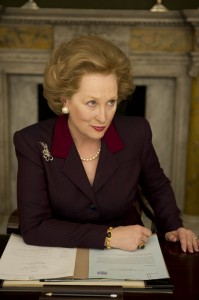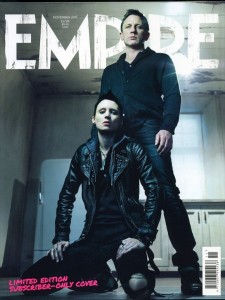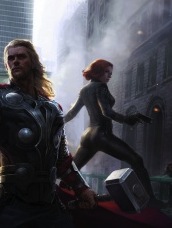 Lest you thought the hype around Bridesmaids — at least in terms of its value as a win for pop cinema equality — was overblown, just lend your ear to this shit…
Lest you thought the hype around Bridesmaids — at least in terms of its value as a win for pop cinema equality — was overblown, just lend your ear to this shit…
The Center for the Study of Women in Television and Film at San Diego State University has done its annual study of the previous year’s mainstream film output and examined the top 100 grossing movies (which would in this case means anything that grossed about $30m or more) and has come up with some figures that are the opposite of cool. Obviously the list knocks out a lot of art house cinema right off the bat, though some of the crossovers like The Artist, Midnight In Paris, and, appropriately, The Iron Lady made the cut. The rest represents everything from Harry Potter to Sucker Punch to The Muppets to The Sitter.
So, the findings?
• Women represented 33% of all characters in 2011 films
• Women represented 11% of “Clearly Identifiable Protagonists” in 2011 films
• In terms of presentation, the study found “on average, female characters in last year’s films were younger than the male characters, less likely to be portrayed as leaders and more likely to be identified by their marital status.”
How do these clearly shitty number compare to previous years? Well a decade ago women represented 5% fewer overall characters in films, while representing 5% more overall protagonists in that same year. Putting it plainly, in 2002 there were generally fewer women on screen, but the ones included were more likely to be actual characters  with a perspective.
with a perspective.
This seems in line with modern corporate thinking, in that you stack the deck with more minorities in the wings and use that as a platform on which to actually focus on more of the leads that are widely “marketable” in very traditional sense (i.e. handsome white dudes). It’s a subtle narrowing of the actual represented points of view, while making it seem like diversity is happening.
It’s an odd world now for diversity in media, as even when a show like Girls seeks to dig into the largely-untouched perspective of young women, it is then criticized from another direction for its utter lack of racial and socioeconomic diversity. I haven’t watched that show so I’ll leave the discussion there for other, more informed people, but suffice to say the issue of dragging media away from an “all white dudes, all the time” paradigm is one fraught with controversy. Hell, a look at any random online discussions of female characters on AMC shows is enough to make that as clear as neon sign…
When you consider that even films that are lauded for sneaking “strong” female characters into the mainstream are things like Hunger Games and The Girl With The Dragon Tattoo, you’re still talking about characters whose narratives are innately driven by the status of their romantic relationships with one or more men. Hell in these cases these men are almost passive forces that are still the rudders for the female character’s total motivation and story. Yes, perhaps those particular girls kick  ass and have more to say, do, and offer as role models than the subjugation fetishry of, say, Twilight, but that’s a piss poor standard for 2011 and beyond.
ass and have more to say, do, and offer as role models than the subjugation fetishry of, say, Twilight, but that’s a piss poor standard for 2011 and beyond.
Perhaps we’ll see some change as a director like Joss Whedon — often cited as a progressive writer of female characters — is empowered in the blockbuster sphere. That said, note that even he only managed such success with a prefabbed team of corporate icons that marginalizes its lone female hero and that, for all his deft writing of the character, he still couldn’t prevent from being marketed as a slab of posed ass (in the early parts of the campaign, at least).
Oh well, at least we’ve got ole Hermione up there at the very top of the 100. She is a fucking four-quadrant, hyper-mainstream female character done right. We need more characters like her playing forty feet tall for our little girls to look up to, you know? Game of Thrones character Arya Stark is good example on TV, but then she’s lost among an outright orgy of female objectification there too. A lady can’t lose for winning these days.
Got any thoughts on this social struggle in our entertainment?
Twitter
Comment Below
Message Board
Source | LA Times

Badass. No caveats.